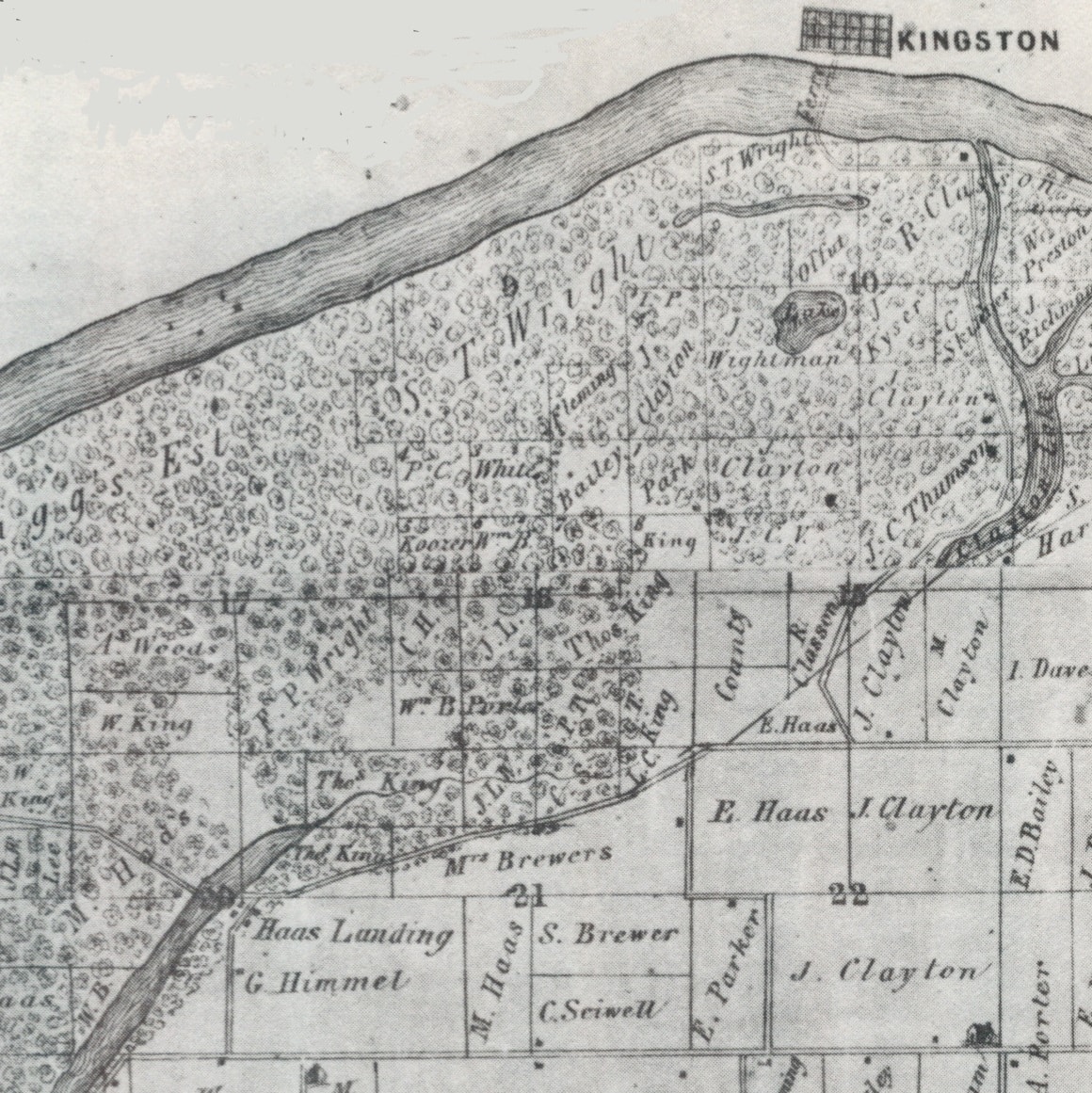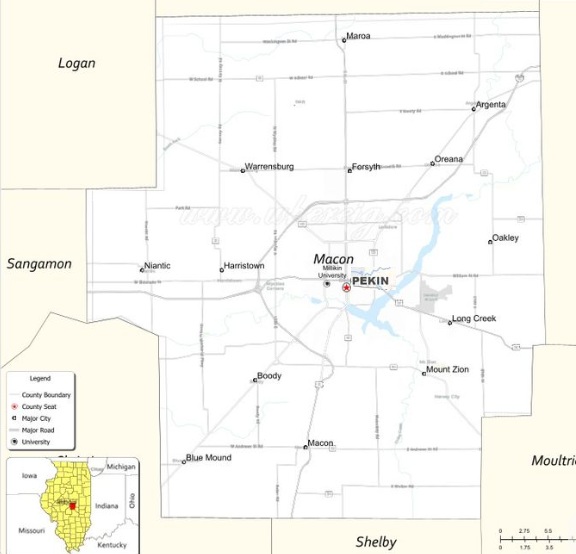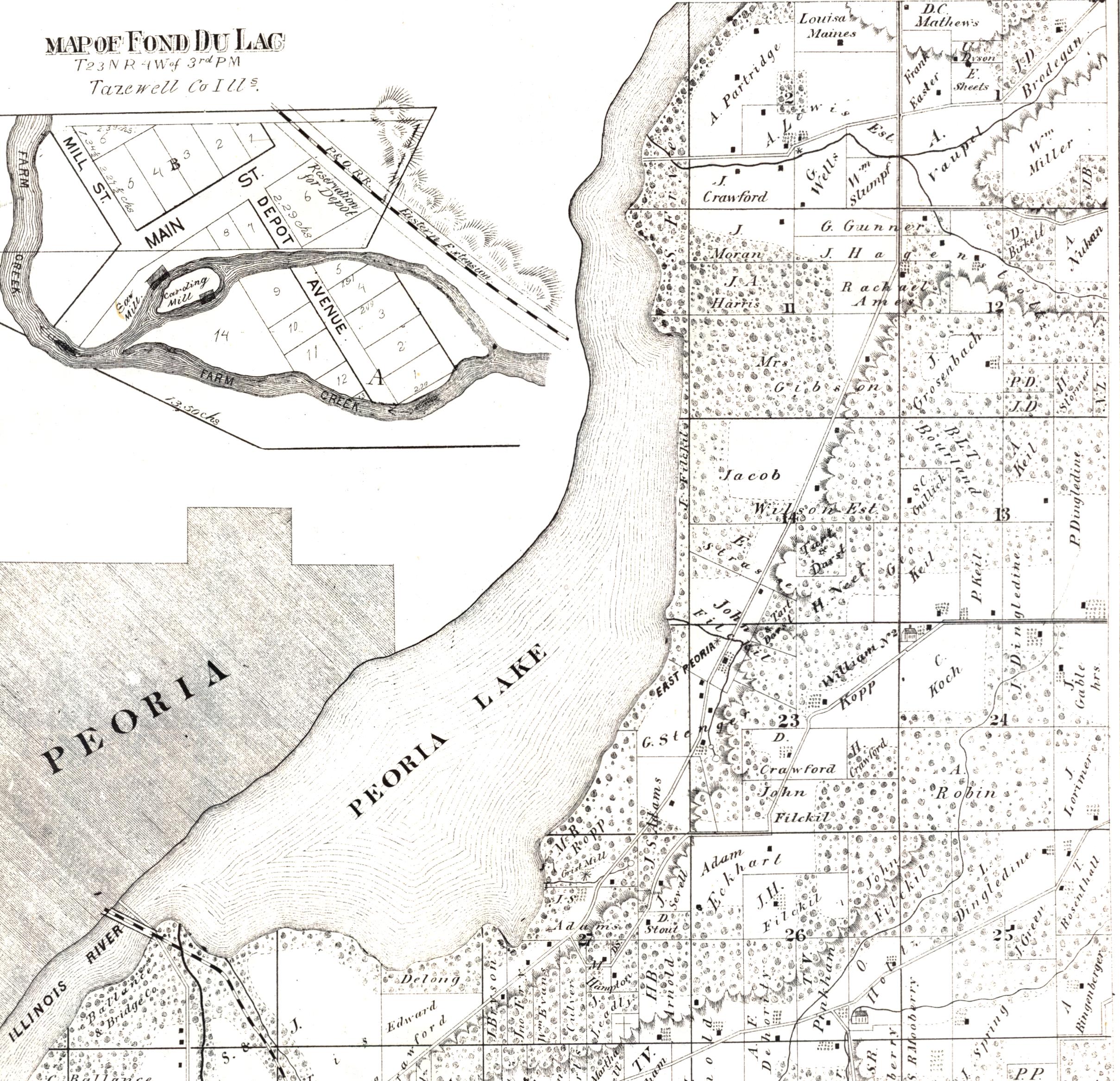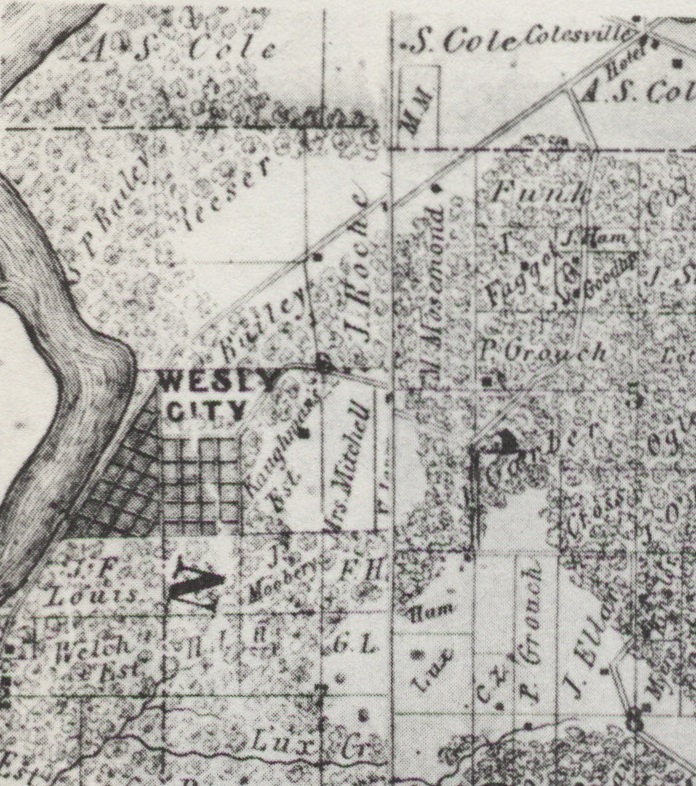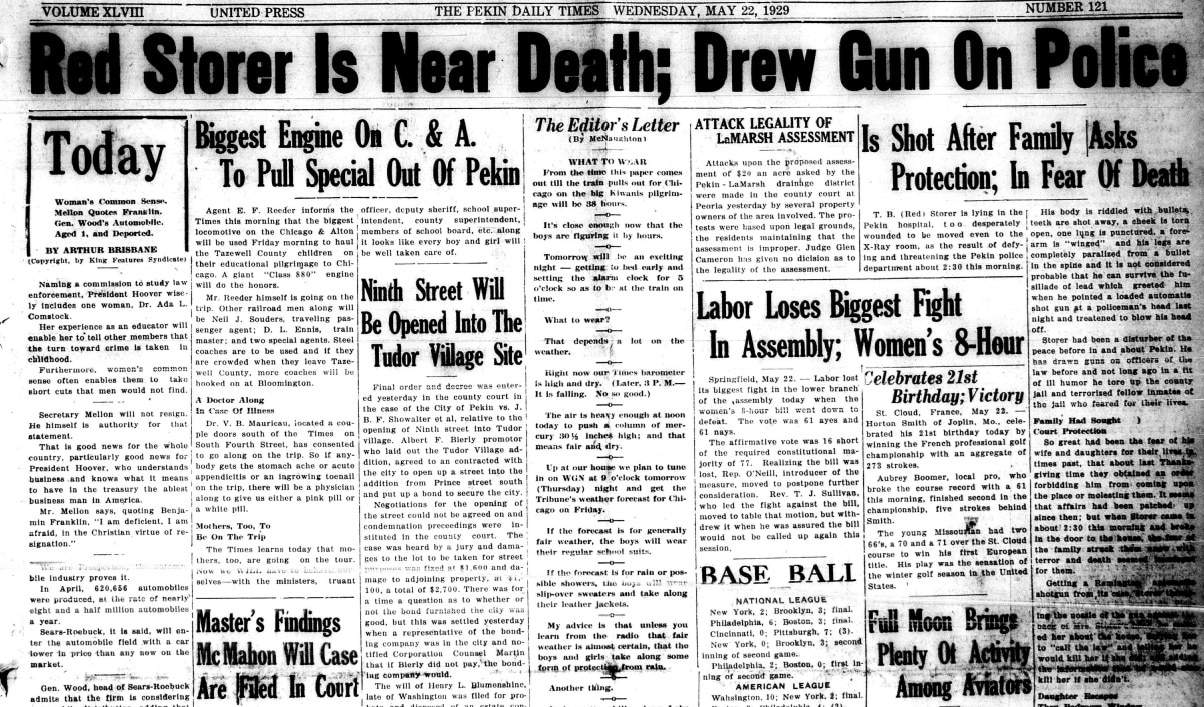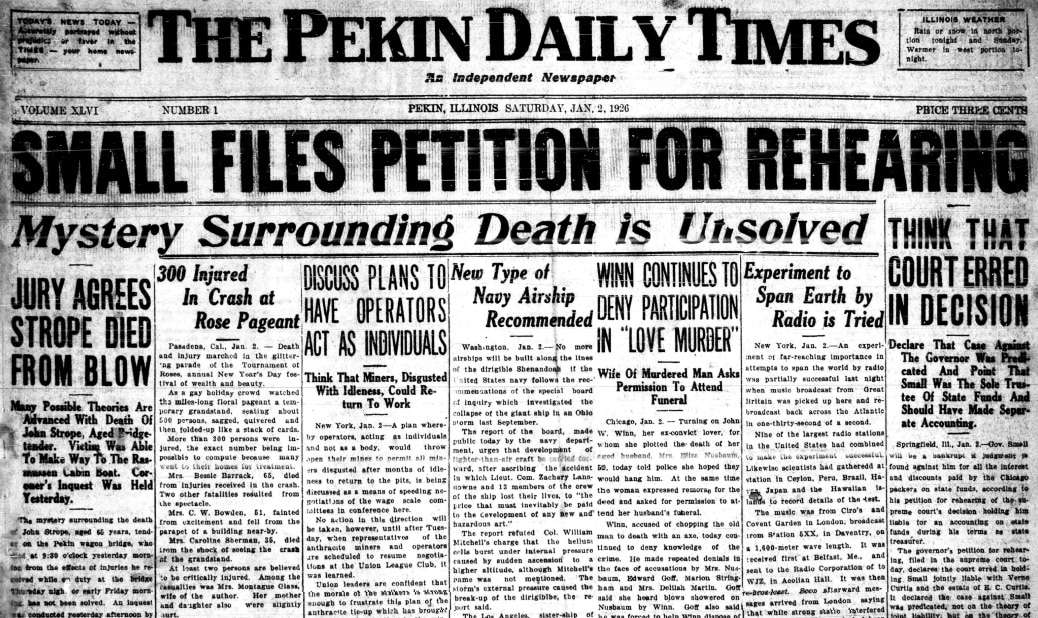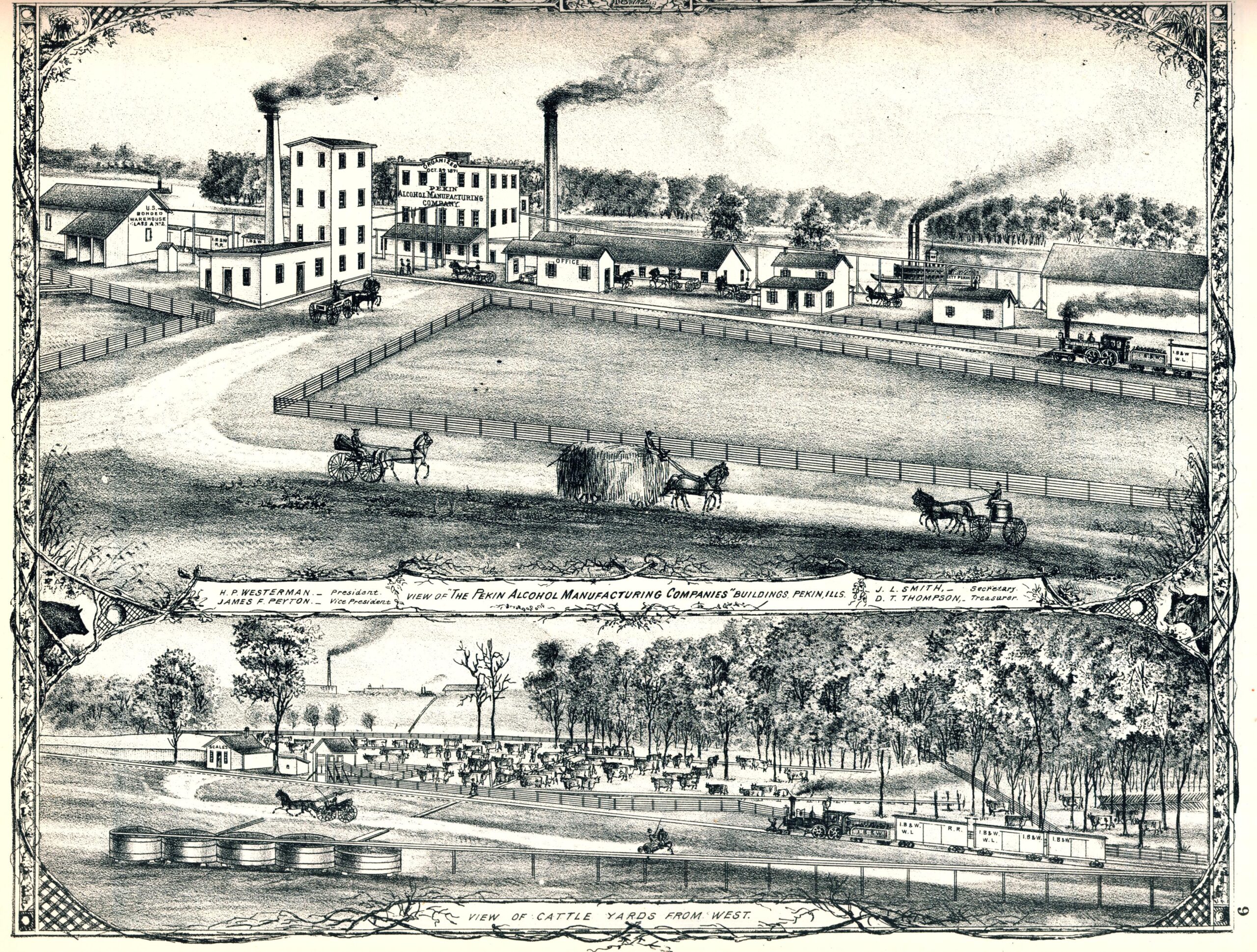This is a reprint of a “From the Local History Room” column that first appeared in Jan. 2015, before the launch of this weblog.
In the first decades after Illinois became a state, much of the state was undeveloped wilderness or sparsely settled. It took time for the development of communities and the establishment of the elements of civil society. Such “Wild West” conditions were ideal for criminals, and many a law-abiding settler fell victim to dishonorable men who had chosen Illinois as the favored scene of their iniquitous deeds.
From the 1830s to the 1850s, Illinois and neighboring states and territories were plagued by an extensive network of prairie bandits – known somewhat poetically as “the Banditti of the Prairie” – who were involved in various species of crime, from horse stealing and cattle rustling to burglary, armed robbery and even murder. In certain locales, before Illinois counties had reliable or effective law enforcement, pioneers sometimes organized vigilance committees and formed posses to round up members of the prairie bandits and bring them to justice (which in those days often meant a hasty trial and death sentence at a gallows tree).
Charles C. Chapman’s 1879 “History of Tazewell County” relates a few tales of the Banditti of the Prairie, and one of those tales is also included in Ben C. Allensworth’s updated Tazewell County history published in 1905, on pages 835-836. The story, quoted below, involves an early settler of Spring Lake Township named Abraham Woods, who met a “charming stranger” in 1853.
“A gentlemanly, sociable, clever fellow, claiming to have plenty of money, and being on his way to California, stopped for dinner. A few days after, he called for breakfast remarking, ‘Treat a dog well and he is sure to return.’ Mr. W. was captivated by the charming stranger, who expressed great admiration for two spans of fine horses, a gray and a bay team, which he saw as he passed the barn. He especially admired the grays.
“A week later, Mr. W. was awakened during the night by the running and whinnying of a horse. He sent his man out to find out what was the matter. The man soon returned with two letters. One had been stuck upon the door, the other was found on the ground. One of the gray horses was gone. One of the letters read as follows:
“‘Oh, avick, shure and its meself that’s trying to make a dacent outfit to go home to Sarah and the childer. As Col. Doniphan said in the Mexican war, I came across your ranche and made bowld to take into service two illegant Gray travelers I found an your premises. I wunst thought of calling and telling you Honor what I was after transacting, but, thinking it would be to bad initirely to be Robbing a dacent gentleman of his Darlings and sweet sleep at the same time I mean, I trust and hope your Darlings can travel handsomely, for I shall be after putting to their trumps, for a while at least, for it’s no more than likely you’ll be after sending the dirthy spalpeen of a constable after me. Bad cess to the likes of him, He’d be asking my name and other unconstitutional questions, for what does Will Shakespeare say, “That which we call the Rose / By any other name would smell as sweet.” So you perceive that this settles the point at issue. Perhaps you would be mighty well obliged should I tell you my name, place of Residence, and where I am from. Well, your honor, I am from everyplace but this, and shall be from this Just as quick as your Darling’s legs can carry me. Now to conclude, Fare ye well, and still forever fare ye well, Hoping your Darling you’ll see never, I can swap them or sell. Acushla Mauverneen.’
“The above letter goes to show that the writer was undoubtedly the stranger who had been so hospitably received a few days before. As soon as this letter was read, and Mr. W. found his horse gone, he notified his neighbors. Soon a large number of his neighbors assembled and prepared for the chase, but ere they had fairly started, the stolen horse returned. It was evident that the thief got alarmed before he had fairly started. He attempted to take both horses, but one had broken loose.
“It was evident from the other letter found that there was a regular systematic gang of horse-thieves running from here to Texas. It was in a sealed envelope and was directed to Frederick Gamble, Galveston, Texas, forwarded by Patrick Dougherty and contained a promissory note for $220 to David C. Jones, of Texas. He states in his letter that ‘Patrick and Jim have gone in the neighborhood of Pekin to make a raid on fine horse, which they would likely get away with, as Patrick was a good engineer, and knew the country. They would stop the first night with a friend on Salt Creek, then to W. Davis’s, near Carlinville, from thence to Chester, where they knew the ferryman, who would take them across in the night, thence proceed with due diligence to Texas.’”
